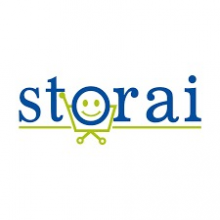Understanding Reverse Charge Mechanism

Retail
407 week ago — 8 min read
Under the Goods & Service Tax Act (GST Act), usually, the tax liability rests on the shoulders of a supplier of goods or a service. However, the GST legislation stipulates that, in exceptional cases, the recipient of the supply of goods or service discharges the tax liability. This is known as the reverse charge mechanism (RCM). RCM is a well-founded concept in service tax legislation, which has been adopted in GST; neither excise nor VAT legislation presently provides for it.
The prime objectives of RCM are administrative convenience, ease of tax collection and broadening of the tax base. The tax authorities prefer to collect tax from a small number of assessees from the organised sector instead of chasing a large number of small and unorganised tax payers.
Basics of RCM
Reverse charge applies only when there is a charge on supply. If supply is exempted, nil rated or non-taxable, RCM does not apply. When the recipients of goods or services pay GST, all provisions of the Act including the collection, recoveries and penal provisions apply to them. Recipients are required to GST at the applicable rates. They need to pay CGST and SGST, CGST and UGST or IGST, depending on the location of the supplier and place of supply. The recipients are required to make payment on their own account, under their GSTIN. It has to be declared in their return in Form GSTR-2 as procurements on which tax liability is discharged under RCM. Payment made under RCM is not a Tax Deducted at Source (TDS) paid by recipient on behalf of supplier. The supplier does not get credit of tax for such a payment. When a recipient pays such a tax, s/he is entitled to avail Input Tax Credit (ITC) thereof subject to other provisions contained in Chapter V of CGST Act and Input Tax Credit Rules. Unlike Service Tax, there is no concept of partial reverse charge in GST legislation.
Overview of Reverse Charge Mechanism
RCM on notified goods or services
Recipients of notified goods, services or both are liable to pay CGST under RCM on supply of notified goods or services u/s 9(3) of CGST Act.
The prime objectives of RCM are administrative convenience, ease of tax collection and broadening of the tax base. Tax authorities prefer to collect tax from a small number of assessees from the organised sector instead of large number of small and unorganised tax payers.
Recipients are liable to pay GST under RCM irrespective of whether recipients are registered or unregistered under GST; or supplier of notified goods or services are registered or unregistered.
Notified services relevant to retailers are:
- Import of services by a person located in non-taxable territory
- Goods Transport Agency Services in respect of transportation of goods by road
- Legal services offered by individual advocates including senior advocate or firm of advocates
- Arbitration Services by Arbitral Tribunal
- Sponsorship Services
- Services by Government or local authority excluding some specified and exempt services
- Director’s service by director of company or corporate body
Time of supply under RCM
Time of supply for goods is earliest of:
- Date of receipt of goods; or
- Date of payment entered in books of accounts or
- Date of debit in bank, whichever is earlier; or
- Date immediately after 30 days from date of invoice.
Time of supply for services is earliest of:
- Date of payment entered in books of accounts or date of debit in bank, whichever is earlier; or
- Date immediately after 60 days from date of invoice
RCM on procurement of goods or services from unregistered persons
Registered retailer is liable to pay tax under RCM on any goods and/or services procured by him from an unregistered person.
A central tax rate notification exempts intra-state procurements from unregistered persons from discharging GST liability under RCM where aggregate value of such procurements from all or any of unregistered persons does not exceed Rs 5,000 in a day. Do note that this is not a threshold exemption. If the aggregate purchases from unregistered persons in a day exceeds Rs 5,000, then all such purchases are li- able to GST under RCM. For instance, if a retailer procures stationery of Rs 2,500 from an unregistered vendor, snacks worth Rs 1,000 for staff from a food joint, and avails housekeeping services of Rs 3,000 and pays it all on the same day, then that retailer is liable to pay GST under RCM on the aggregate procurements of Rs 6,500. However, if the aggregate payment was Rs.5000 or less, there would have been no need to pay GST.
Due date for payment of tax under RCM
Under RCM, the due date of payment of tax is linked to the time of supply as prescribed u/s 12 and 13 of CGST Act. Retailers are legally obliged to discharge their liability under RCM on or before 20th of the following month in which time of supply has taken place. So, GST under RCM for August is to be discharged on or before 20th September.
Mandatory registration for person liable to pay GST under RCM
Section 24(iii) of CGST Act mandates compulsory registration under GST for persons liable to pay tax under RCM. Threshold limit is not applicable to persons liable to pay under RCM. Retailers with a turnover of less than Rs. 75,00,000 and those having opted for composition scheme are also liable to pay GST under RCM.
Under RCM, retailers having a turnover of less than Rs 20 lakh are liable in respect of specified goods or services. They are legally obliged to register under GST even if they are within threshold limit. However, retailers dealing exclusively in exempt or non-taxable supplies are not liable to take mandatory registration as prescribed u/s 24(iii) of CGST Act.
Documentation
Section 31(3)(f ) mandates registered person liable to pay GST under RCM to issue an invoice in respect of goods and services received by him from unregistered supplier. Such invoices should contain all particulars as prescribed u/s 31(1) and 31(2) r.w. CGST Rules, 2017 to the extent applicable. This would mean retailers procuring goods and services and paying tax under RCM are obliged to mention HSN Codes and Service Accounting codes of goods or services procured by them.
These invoices can be used to avail input tax credit. Furthermore, a registered person liable to pay GST under RCM shall issue a payment voucher at the time of making payment to supplier. Retailers paying GST for specified goods and services need not issue an invoice. However, they need to issue payment voucher at the time of making payment.
To explore business opportunities, link with us by clicking on the 'Invite' button on our eBiz Card.
Article contributed by Naresh K. Sheth for STOrai Magazine
Disclaimer: The views and opinions expressed in this article are those of the author and do not necessarily reflect the views, official policy or position of GlobalLinker.
View STOrai 's profile
Other articles written by STOrai Magazine
The Art & Science of People Pleasing in Retail
27 week ago
Most read this week













Comments
Share this content
Please login or Register to join the discussion